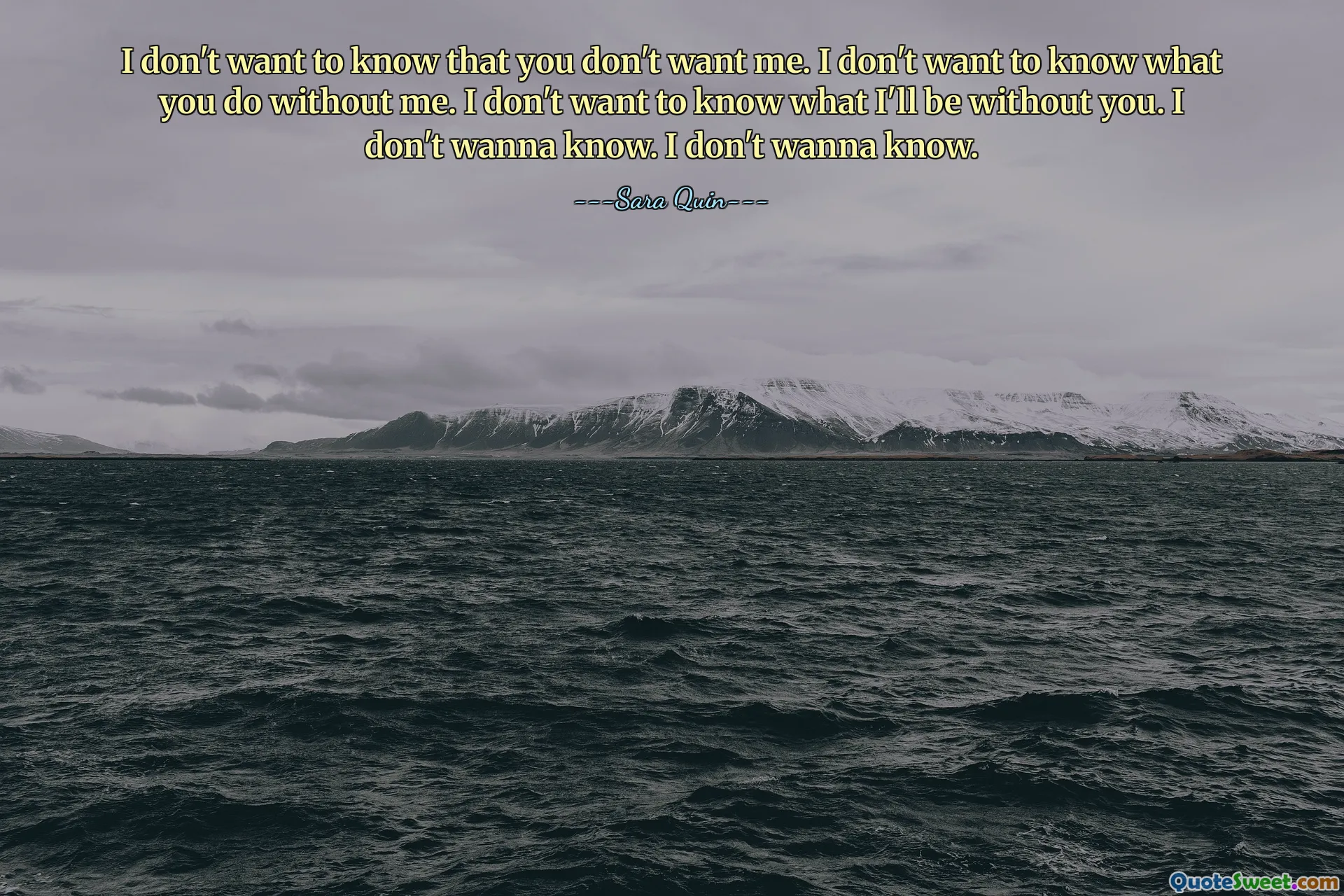
I don't want to know that you don't want me. I don't want to know what you do without me. I don't want to know what I'll be without you. I don't wanna know. I don't wanna know.
This quote encapsulates the emotional depth of longing and vulnerability often associated with love and separation. It reveals a person's desire to maintain the illusion of innocence and to remain unburdened by painful truths about a relationship or emotional dependency. The repeated refrain of "I don't want to know" emphasizes a refusal to confront reality or face potential heartbreak, highlighting how sometimes the prospect of loss or heartbreak is too overwhelming to bear.
The sentiment suggests that knowledge of separation or emotional pain might be easier to ignore than to confront openly. It resonates with the human tendency to cling to comfort and familiarity, even if it means avoiding truthful acknowledgment of the issues at hand. This narrative echoes the complex feelings people experience when tragedy or distance threaten the intimacy they cherish.
On a broader level, the lyrics may illustrate the fragile nature of human optimism and the desire for unblemished connections. We often prefer ignorance over pain, and this quote beautifully underscores that choice—choosing blissful ignorance despite the risk of genuine connection and vulnerability.
The repetition in the quote also conveys a sense of obsession or inability to let go of these conflicting emotions. It highlights how people sometimes get trapped in cycles of denial to protect their fragile hope.
Overall, this quote is a poignant reflection on the emotional conflicts associated with love, loss, and the human tendency to avoid painful truths at all costs. It captures the essence of emotional vulnerability and the innate desire to protect oneself from hurt by remaining in the comfort zone of ignorance.











